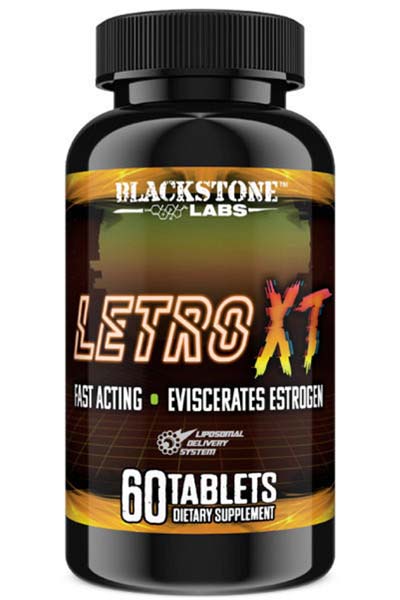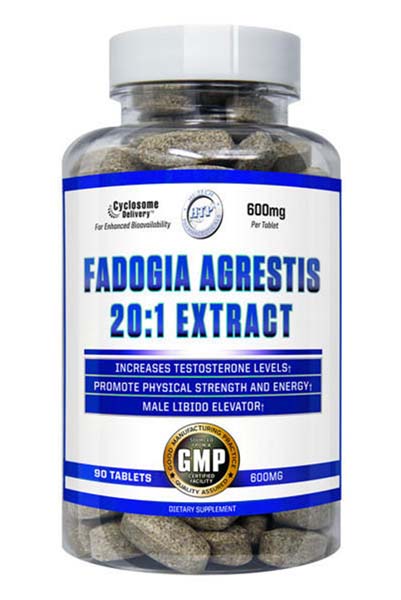
In the intricate symphony of human health, hormonal balance plays a pivotal role, influencing everything from mood and energy levels to metabolism and reproductive function. The delicate equilibrium between hormones such as estrogen and testosterone is vital for maintaining overall well-being. As we delve into the world of hormonal balance, this blog aims to shed light on two crucial aspects: estrogen blockers and testosterone boosters. Understanding these concepts is essential not only for those seeking to optimize their hormonal health but also for anyone interested in enhancing their vitality and longevity.
Our bodies are governed by a complex network of hormones, acting as messengers that regulate various physiological processes. Estrogen, often associated with female health, and testosterone, typically linked to male health, are two key hormones that hold significant sway over our bodies’ functions. However, an imbalance in the levels of these hormones can lead to a range of health issues, from mood swings and weight gain to more serious concerns like infertility and increased disease risk.
What are estrogen blockers?
Estrogen blockers, also known as estrogen antagonists or estrogen suppressors, are substances that help regulate the levels of estrogen in the body. Estrogen is a group of hormones primarily associated with the development of female sexual characteristics and the regulation of the female reproductive system. However, both men and women have estrogen in their bodies, and maintaining a proper balance is essential for overall health.
The function of estrogen blockers is to either reduce the production of estrogen or interfere with its activity by binding to estrogen receptors in cells. By doing so, they can mitigate the effects of excess estrogen, which can lead to various health issues when left unchecked.
Natural Sources of Estrogen Blockers
Nature provides a wealth of estrogen-blocking compounds found in various foods and herbs. Incorporating these into your diet can help support hormonal balance. Some natural sources of estrogen blockers include:
- Cruciferous Vegetables: Vegetables like broccoli, cauliflower, kale, and Brussels sprouts contain compounds like indole-3-carbinol (I3C) and sulforaphane, which promote estrogen metabolism and clearance.
- Flaxseeds: These tiny seeds are rich in lignans, which possess weak estrogen-blocking properties and can help balance hormone levels.
- Chasteberry: Also known as Vitex, chasteberry is an herb often used to relieve symptoms of premenstrual syndrome (PMS) by helping regulate estrogen levels.
- Turmeric: Curcumin, the active compound in turmeric, has anti-inflammatory properties and may help modulate estrogen activity.
Benefits of Maintaining Balanced Estrogen Levels 1. Reduced Risk of Certain Issues
One of the key benefits of maintaining balanced estrogen levels is a reduced risk of certain health issues.
Improved Reproductive Health
Balanced estrogen levels are crucial for reproductive health in both men and women. In women, it contributes to regular menstrual cycles and fertility. In men, it plays a role in sperm production. Estrogen blockers can be helpful in cases of hormonal imbalances that affect fertility or reproductive health.

What are testosterone boosters?
Testosterone boosters are substances, natural or synthetic, designed to increase the production or availability of testosterone in the body. Testosterone is a vital hormone primarily associated with male health, but it also plays important roles in female physiology. Its functions include regulating muscle mass, bone density, mood, energy levels, and sex drive.
Testosterone boosters aim to enhance these functions by either stimulating the body’s natural testosterone production or improving the utilization of existing testosterone.
Natural Ways to Increase Testosterone Levels 1. Diet and Nutrition
Proper nutrition plays a significant role in maintaining healthy testosterone levels. Some dietary strategies to naturally boost testosterone include:
- Protein-Rich Diet: Consuming adequate protein supports muscle growth and repair, which can help maintain healthy testosterone levels.
- Healthy Fats: Incorporating sources of healthy fats like avocados, nuts, and olive oil provides essential fatty acids that support hormone production.
- Zinc and Vitamin D: These nutrients are crucial for testosterone synthesis. Foods rich in zinc, such as oysters and lean meats, and exposure to sunlight for vitamin D are beneficial.
Exercise and Physical Activity
Regular physical activity, especially resistance training and high-intensity interval training (HIIT), can stimulate testosterone production. These exercises help build muscle mass and reduce body fat, both of which contribute to improved testosterone levels.
Herbal Testosterone Boosters 1. Popular Herbs and Their Benefits
Herbal remedies have been used for centuries to support testosterone production. Some well-known herbal testosterone boosters include:
- Tribulus Terrestris: This herb is believed to enhance testosterone levels by stimulating the release of luteinizing hormone (LH), which signals the testes to produce more testosterone.
- Ashwagandha: An adaptogenic herb, ashwagandha may help reduce stress and cortisol levels, which can indirectly support healthy testosterone levels.
- Fenugreek: Fenugreek seeds contain compounds that may boost testosterone and increase libido.
Caution with Synthetic Testosterone Boosters 1. Potential Risks and Side Effects
While natural methods and herbal remedies are generally safe like natural testosterone boosters, using synthetics such as anabolics and testosterone replacement therapy (TRT), come with potential risks and side effects. It’s crucial to approach these with caution:
- Cardiovascular Risks: Synthetic testosterone can increase the risk of cardiovascular issues like heart disease and hypertension.
- Hormonal Imbalances: Overuse or misuse of synthetic testosterone can disrupt the body’s natural hormone production, leading to hormonal imbalances.
- Mood Changes: Some individuals may experience mood swings, aggression, or irritability when using synthetic testosterone.
- Dependency: The use of synthetic testosterone can lead to dependency, where the body becomes reliant on external sources of testosterone production.
The Connection Between Hormonal Balance and Overall Health
Impact of Balanced Hormones on Mood and Energy
Hormonal balance plays a pivotal role in regulating mood and energy levels. Fluctuations in hormones, such as estrogen and testosterone, can lead to mood swings, irritability, and even conditions like depression. When these hormones are in equilibrium, individuals often experience improved emotional well-being and mental clarity.
Estrogen, for instance, influences the production of serotonin, a neurotransmitter linked to mood regulation. Its imbalance can result in mood disturbances, especially in women during certain phases of the menstrual cycle or menopause. Similarly, testosterone is associated with confidence and a positive mindset, and its deficiency can contribute to feelings of fatigue and low energy.
Hormonal Balance and Weight Management
Maintaining hormonal balance is intricately tied to effective weight management. Insulin, cortisol, and thyroid hormones are key players in this aspect. Insulin regulates blood sugar and fat storage, while cortisol, the stress hormone, can lead to weight gain when consistently elevated. Thyroid hormones influence metabolism, impacting how efficiently the body burns calories.
When hormones are imbalanced, insulin resistance can occur, leading to weight gain and an increased risk of type 2 diabetes. Chronic stress and elevated cortisol levels can contribute to abdominal fat accumulation. Thyroid dysfunction can slow down metabolism, making it harder to manage weight effectively.
Hormones and Their Role in Skin Health
Hormones significantly impact skin health and appearance. For instance, estrogen contributes to collagen production, skin thickness, and moisture retention. As estrogen levels decrease with age, skin can become drier and more prone to wrinkles.
Testosterone, although typically associated with males, also affects skin health in both genders. Excessive testosterone can lead to oilier skin and acne. Conversely, balanced testosterone levels contribute to a healthy complexion.
Hormones’ Influence on Cognitive Function
Hormones play a crucial role in cognitive function, memory, and concentration. Estrogen, for instance, has neuroprotective effects, supporting brain health and reducing the risk of cognitive decline. Its fluctuations during the menstrual cycle and menopause can impact cognitive abilities in women.
Testosterone is also involved in cognitive processes. Studies have shown that men with higher testosterone levels may exhibit enhanced spatial abilities and cognitive performance.
Thyroid hormones are essential for brain development, and their imbalance can lead to cognitive impairments, such as memory issues and brain fog.

Strategies for Maintaining Hormonal Balance
Foods That Support Hormonal Balance
A well-balanced diet plays a crucial role in maintaining hormonal equilibrium. Certain foods contain nutrients that support hormone production and regulation:
- Omega-3 Fatty Acids: Found in fatty fish, flaxseeds, and walnuts, omega-3s help reduce inflammation and support hormonal health.
- Vitamin D: Exposure to sunlight and consumption of vitamin D-rich foods like fatty fish and fortified dairy products contribute to healthy hormone levels.
- Fiber-Rich Foods: Whole grains, fruits, and vegetables provide fiber that aids in managing insulin levels and supporting overall hormone balance.
- Lean Proteins: Including sources like lean meats, poultry, and plant-based proteins helps maintain muscle mass and support hormonal functions.
Regular Exercise and Its Effects on Hormones
Engaging in regular physical activity offers numerous benefits for hormonal balance:
- Endorphin Release: Exercise triggers the release of endorphins, which can help reduce stress and improve mood.
- Insulin Sensitivity: Physical activity enhances insulin sensitivity, aiding in blood sugar regulation and preventing insulin resistance.
- Testosterone Boost: Resistance training and high-intensity workouts can stimulate testosterone production, supporting muscle growth and overall vitality.
Stress Management Techniques
- Impact of Stress on Hormonal Equilibrium 2. Mindfulness and Relaxation Methods
Chronic stress can disrupt hormonal balance by increasing cortisol levels. Elevated cortisol over time can lead to various health issues. Stress management is essential:
- Mindfulness Meditation: Mindfulness practices reduce stress and cortisol levels, promoting overall hormonal health.
- Yoga: Yoga combines movement, deep breathing, and mindfulness, making it effective for reducing stress and supporting hormonal balance.
- Breathing Exercises: Techniques like deep breathing and progressive muscle relaxation can help calm the body’s stress response.
Sleep’s Role in Hormonal Regulation
Establishing a Sleep Routine
Adequate sleep is crucial for hormonal regulation, as it allows the body to restore and balance hormones:
- Melatonin Production: Quality sleep supports the production of melatonin, a hormone that regulates sleep-wake cycles.
- Growth Hormone Release: Deep sleep contributes to the release of growth hormone, vital for tissue repair and overall health.
- Cortisol Balance: Poor sleep can disrupt cortisol levels, leading to increased stress and potential hormonal imbalances.
Creating a consistent sleep routine, maintaining a dark and quiet sleep environment, and limiting screen time before bed can contribute to better sleep quality.
Incorporating these strategies into your lifestyle can go a long way in supporting hormonal balance. Remember that hormonal health is interconnected with overall well-being, and small changes in diet, exercise, stress management, and sleep habits can lead to significant improvements in your health and vitality.
When to Seek Professional Guidance
Monitoring Hormonal Levels
Regular monitoring of hormonal levels is essential for understanding your body’s hormonal balance. Consider seeking professional guidance in the following situations:
- Symptoms of Imbalance: If you’re experiencing persistent symptoms such as mood swings, fatigue, changes in libido, or weight fluctuations, it may be a sign of hormonal imbalance.
- Age-Related Changes: As you age, hormonal levels naturally shift. Monitoring can help identify changes and address them promptly.
- Reproductive Health: For women, irregular menstrual cycles, severe PMS, or fertility issues might warrant hormonal assessment.
Consulting Healthcare Professionals
Consulting a healthcare professional is vital for accurate diagnosis and personalized guidance:
- Endocrinologist: A specialist in hormones can help diagnose and treat hormonal disorders.
- Primary Care Physician: Your regular doctor can provide a baseline assessment and refer you to specialists if necessary.
- Gynecologist/Andrologist: These specialists focus on female and male reproductive health, respectively.
- Nutritionist/Dietitian: They can help design a diet that supports hormonal balance.
- Personal Trainer: For creating an exercise plan that supports hormonal health.
Potential Need for Hormone Replacement Therapy
In certain cases, hormone replacement therapy (HRT) may be recommended:
- Menopause or Andropause: HRT can alleviate symptoms like hot flashes, mood changes, and reduced libido.
- Thyroid Imbalances: HRT might be necessary to manage thyroid hormone deficiencies.
- Hormone Deficiency Disorders: Conditions like hypogonadism (low testosterone) might require HRT under medical supervision.
It’s important to note that HRT should be approached cautiously, as it comes with potential risks and side effects. Consulting a healthcare professional is essential to determine if HRT is appropriate for your situation.
Remember, seeking professional guidance ensures you receive accurate assessments and personalized recommendations tailored to your unique hormonal needs. Hormonal balance is a delicate aspect of overall health, and working with experts can help you make informed decisions for your well-being.
Conclusion
The intricate dance of hormones within our bodies orchestrates our overall health and well-being. From influencing mood and energy levels to regulating weight, skin health, and cognitive function, hormonal balance is at the core of optimal living. In this exploration of hormonal balance, we’ve delved into the realms of estrogen blockers and testosterone boosters, uncovering the ways they contribute to our vitality.
Understanding the significance of maintaining balanced hormones empowers us to take charge of our health. Incorporating a healthy diet rich in hormone-supporting nutrients, engaging in regular exercise, practicing stress management techniques, and prioritizing quality sleep are steps toward achieving and sustaining hormonal equilibrium.
Also Read: Kegel muscles in Men and Women – the way to strengthen?




